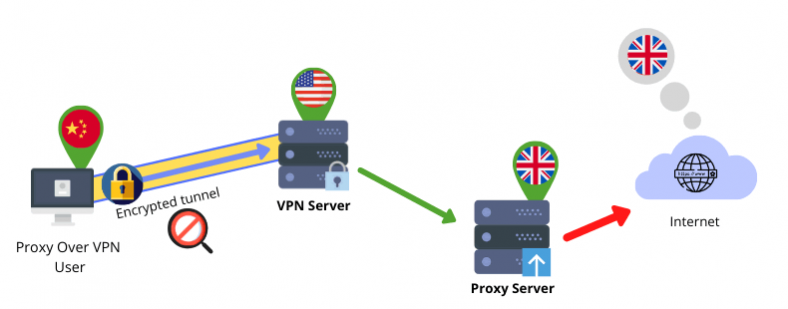VPN Vs Proxy Which One Should You Choose?
A common question among people who value their online privacy is what the difference is between a proxy and a VPN. While both sound similar, they offer different levels of security and functionality. In this guide, we’ll break down the differences between the two and help you decide which one is right for your needs.

What is a Proxy?
A proxy server acts as an intermediary between your device and the internet. When you use a proxy, all internet traffic is first sent to the proxy server, which then forwards the traffic to the destination website. This means that the destination website sees the proxy’s IP address, not your own.
Proxies can be used for a variety of purposes. For example, they can be used to bypass internet censorship, access geo-restricted content, or simply to hide your IP address from the websites you visit. However, it’s important to note that proxies do not encrypt your internet traffic, meaning that your activity can still be intercepted and seen by others.
What is a VPN?
A VPN, or virtual private network, creates a private and secure connection between your device and the internet. When you use a VPN, all internet traffic is first encrypted and then sent to the VPN server, which then forwards the traffic to the destination website. This means that both your IP address and your internet activity are hidden from the websites you visit.
VPNs are commonly used for online privacy and security. They can be used to protect your online activity from eavesdropping, prevent ISPs from tracking your activity, and bypass internet censorship and geo-restrictions. Additionally, some VPNs offer additional features such as malware protection or ad-blocking.
Proxy vs. VPN – Which is Right for You?
Now that we’ve covered the basics of both proxies and VPNs, let’s take a look at some of the key differences between the two:
- Security – While proxies can provide some level of anonymity, they do not encrypt your internet traffic. VPNs, on the other hand, offer strong encryption and can effectively hide your internet activity from prying eyes.
- Functionality – Proxies can be used for a variety of purposes, such as accessing geo-restricted content or hiding your IP address. However, they often do not offer the same level of functionality as VPNs. VPNs can provide additional security features and can be used to bypass internet censorship and protect your online activity from eavesdropping.
- Speed – Proxies can often be faster than VPNs due to the fact that they do not encrypt your traffic. However, this can also mean they are less secure. VPNs may be slower due to the encryption, but many reputable VPN providers offer fast speeds and optimized servers.
- Cost – Proxies are generally cheaper than VPNs, but they also offer less security and functionality. VPNs can be more costly but are often worth the extra investment for the added level of security and privacy.
Conclusion
Proxies and VPNs both offer their own unique benefits and drawbacks. In general, if you’re looking for a quick and easy way to hide your IP address or access geo-restricted content, a proxy may be a good choice. However, if you’re looking for strong encryption, additional security features, and a more private online experience, a VPN is likely the better choice.
No matter which option you choose, it’s important to do your research and choose a reputable provider. Always read reviews and compare features before making a decision. With the right proxy or VPN, you can enjoy a more private and secure online experience.




Post a Comment for "VPN Vs Proxy Which One Should You Choose?"